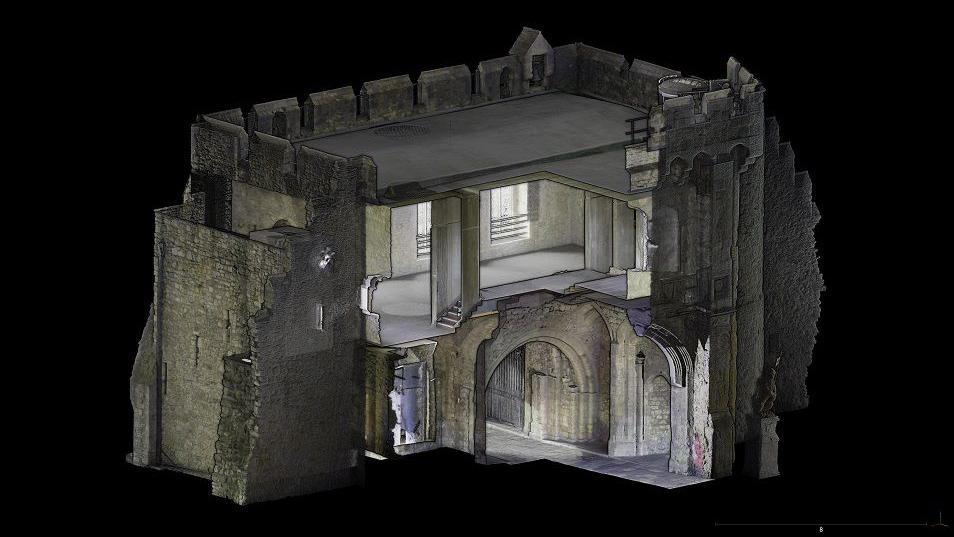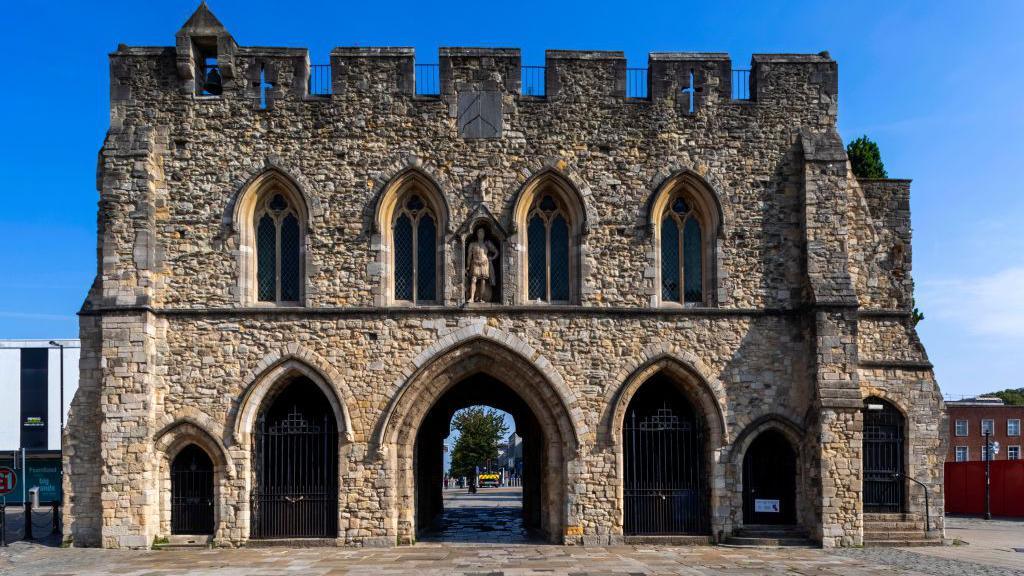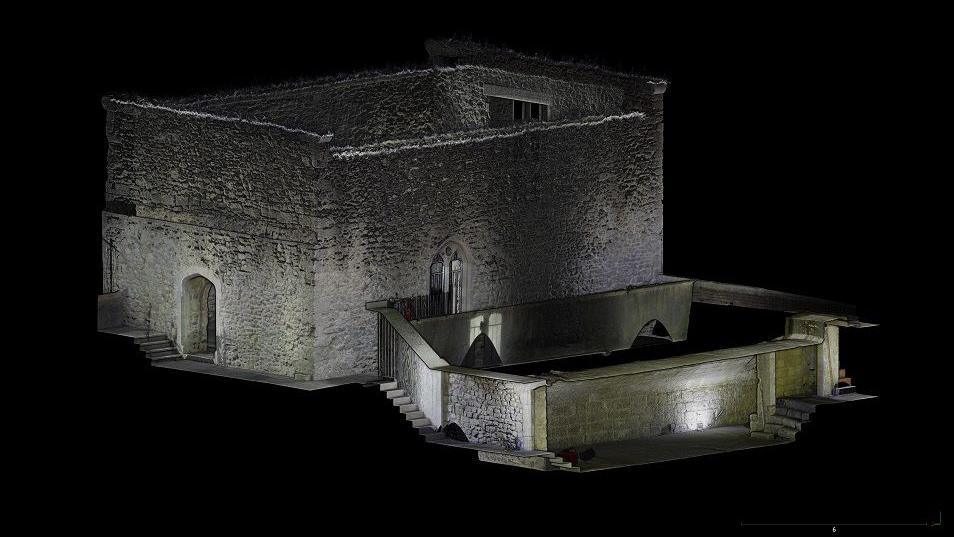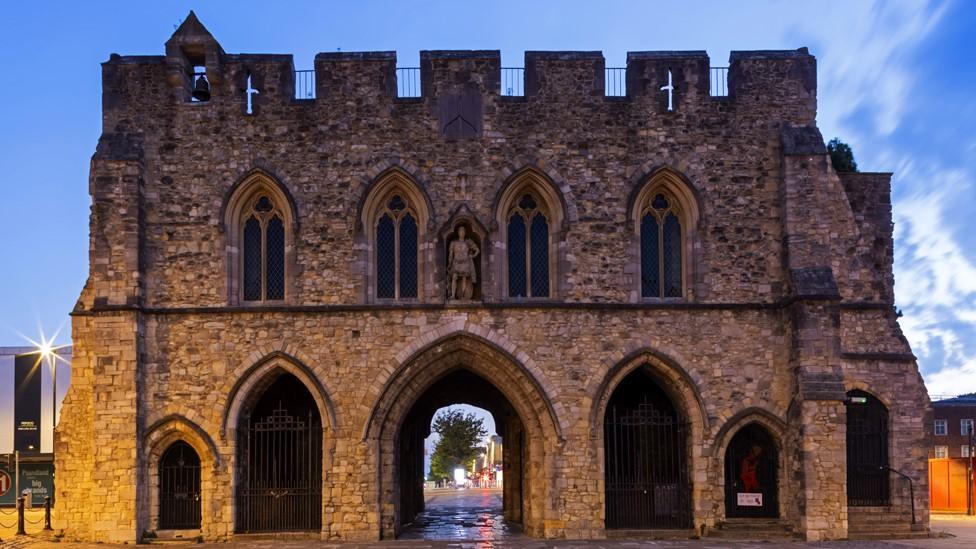'Bringing history to life' through 3D laser scanning

3D models of iconic medieval buildings, like the Bargate, can now be viewed on smartphones
- Published
A project producing detailed computer models of a city's medieval buildings will "bring history to life", an archaeologist has said.
In a partnership between the University of Southampton and Southampton City Council, visitors can now explore buildings such as the Bargate and St Michael's Prison Vault on their smartphones.
The scheme will help preserve the sites as well as meaning areas that are normally inaccessible can be explored digitally.
Maritime archaeologist Dr Felix Pedrotti said the technology "opened up exciting possibilities" and helped people understand "the architecture, culture, and daily life of the period".

The Bargate is one of the buildings that has been reconstructed in digital form
The project began in 2021 when Southampton City Council undertook renovation work on Weigh House, which dates to the mid-13th century.
Scanning was then extended to a further 14 structures.
Students from the university also helped to scan hundreds of objects, including those not regularly available to view or that have details hard to see with the naked eye.
Archaeologists then spent more than two years mapping buildings, including God's House Tower and The Undercroft.
People can now explore them on the Southampton Cultural Services website or by scanning QR codes on postcards available in a variety of locations across Southampton, such as museums, cafes and the John Hansard Gallery.

The models "overcome the obstacles of steps", according to a city council officer
The University of Southampton's Dr Kristian Strutt said the project would not just benefit research.
"The outreach aspects, in terms of engaging with members of the public... and the opportunity it has created for training our students, has been fantastic," he said.
The work would also make exploring the city more accessible, according to Jo Bailey, monuments and memorials officer at Southampton City Council
"They overcome the obstacles of steps and limited opening days, and extend the audience to include people living or studying overseas," she said.
Get in touch
Do you have a story BBC Hampshire & Isle of Wight should cover?
You can follow BBC Hampshire & Isle of Wight on Facebook, external, X (Twitter), external, or Instagram, external.
- Published21 October 2021
